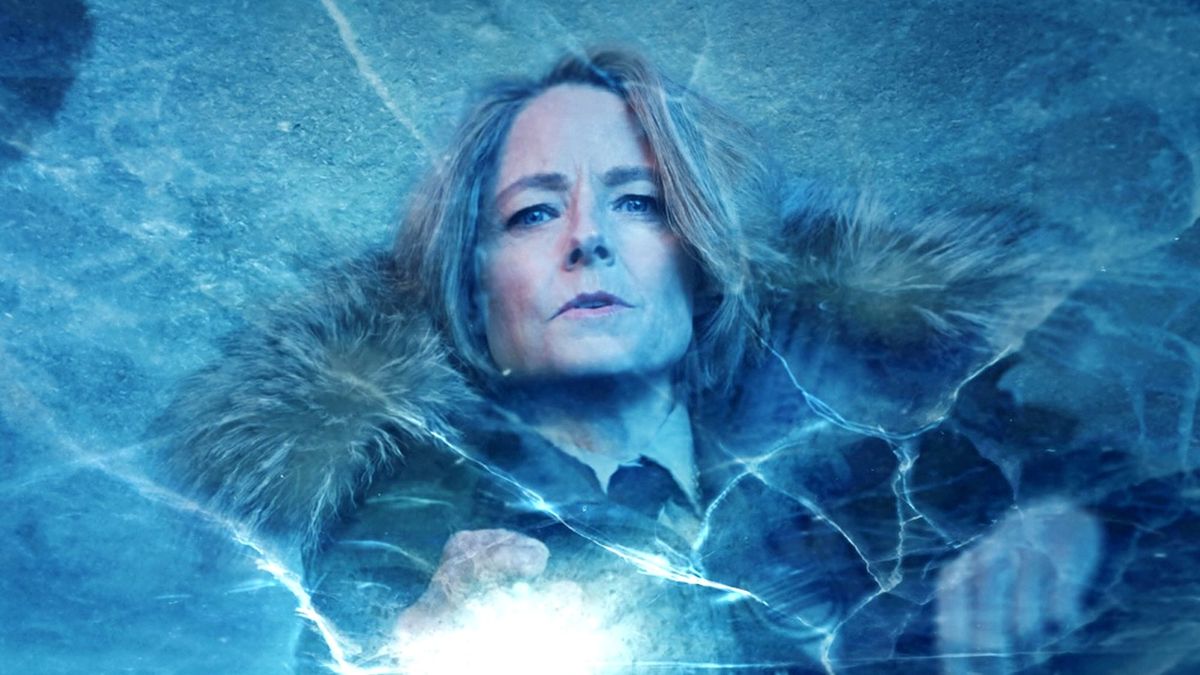In an era where television finales often leave audiences divided, “True Detective: Night Country” dared to tread a path that is as icy and treacherous as the Alaskan landscape it is set against. With a finale that packed more twists and revelations into its 75-minute runtime than most shows dare across an entire season, viewers were left both satisfied and speculative.
The finale, which saw detectives Liz Danvers and Evangeline Navarro confront the chilling mysteries of the ice caves, offered a narrative as layered and complex as the series itself.

The Science of Madness and the Quest for Power
At the heart of “True Detective: Night Country” is a tale of obsession. The series finale dispelled the swirling rumors of a madness-inducing microorganism, instead presenting a more human folly: the lust for power. The scientists’ descent into madness, driven not by biological agents but by their own unchecked ambitions, serves as a compelling critique of the pursuit of glory at the expense of ethical integrity.
Issa López, the show’s visionary creator, masterfully weaves a narrative that questions the very nature of ambition and the cost of human endeavor.
The Supernatural vs. The Rational: A Dual Explanation
One of the series’ most captivating aspects is its refusal to offer single, clear-cut answers. The fate of Annie K. and the mysterious appearance of her tongue at Tsalal Station are left to the audience’s interpretation, with López providing enough material for both supernatural and rational explanations. This ambiguity enriches the narrative, allowing viewers to choose their path through the complex web of mysteries that “True Detective: Night Country” presents.

The Eternal Spiral: Connecting Past and Present
In a nod to the series’ legacy, the finale connects “True Detective: Night Country” to the universe first explored in Season 1. Through the inclusion of the iconic “time is a flat circle” line, López not only pays homage to the philosophical underpinnings of the series but also reinforces the interconnectedness of its universe. The spiral symbol, recurring throughout the series, serves as a bridge between seasons, suggesting a deeper, possibly supernatural layer to the story’s reality.
The Human Element: Redemption and Transformation
Beyond the mysteries and the philosophical musings lies the series’ true strength: its deep, nuanced exploration of human emotions and relationships. Liz Danvers’ journey from a hardened, bitter detective to a character capable of vulnerability and change is a testament to the series’ understanding of human complexity. Similarly, the arc of Peter Prior offers a poignant look at guilt, redemption, and the possibility of healing, even in the darkest of circumstances.
‘True Detective: Night Country’ Just Gave the Series Its Best Finale Ever
Season Four finale of HBO's crime-drama anthology not only sticks the landing — it sets the standard for how to close a 'True Detective' case.🫳🏽🎤😮💨https://t.co/HYqM2j7yNJ
— Kali Reis (@KO_Reis86) February 19, 2024
A Love Story Beyond Romance
Issa López’s decision to explore the profound, non-romantic love between Danvers and Navarro adds a refreshing depth to the narrative. Their relationship, transcending traditional boundaries, speaks to the series’ broader themes of connection, understanding, and mutual respect. It is a fitting tribute to the series’ commitment to portraying human relationships in all their complexity.

True Detective: Night Country – A Legacy of Mystery and Human Depth
“True Detective: Night Country” concludes as a masterpiece of storytelling, blending the eerie allure of the supernatural with the grounded, gritty reality of human nature. Its refusal to provide easy answers mirrors the complexities of the real world, inviting viewers to engage deeply with the narrative and draw their conclusions. As the series fades to black, it leaves behind a legacy of thought-provoking storytelling and a reminder of the power of television to explore the depths of the human condition.










